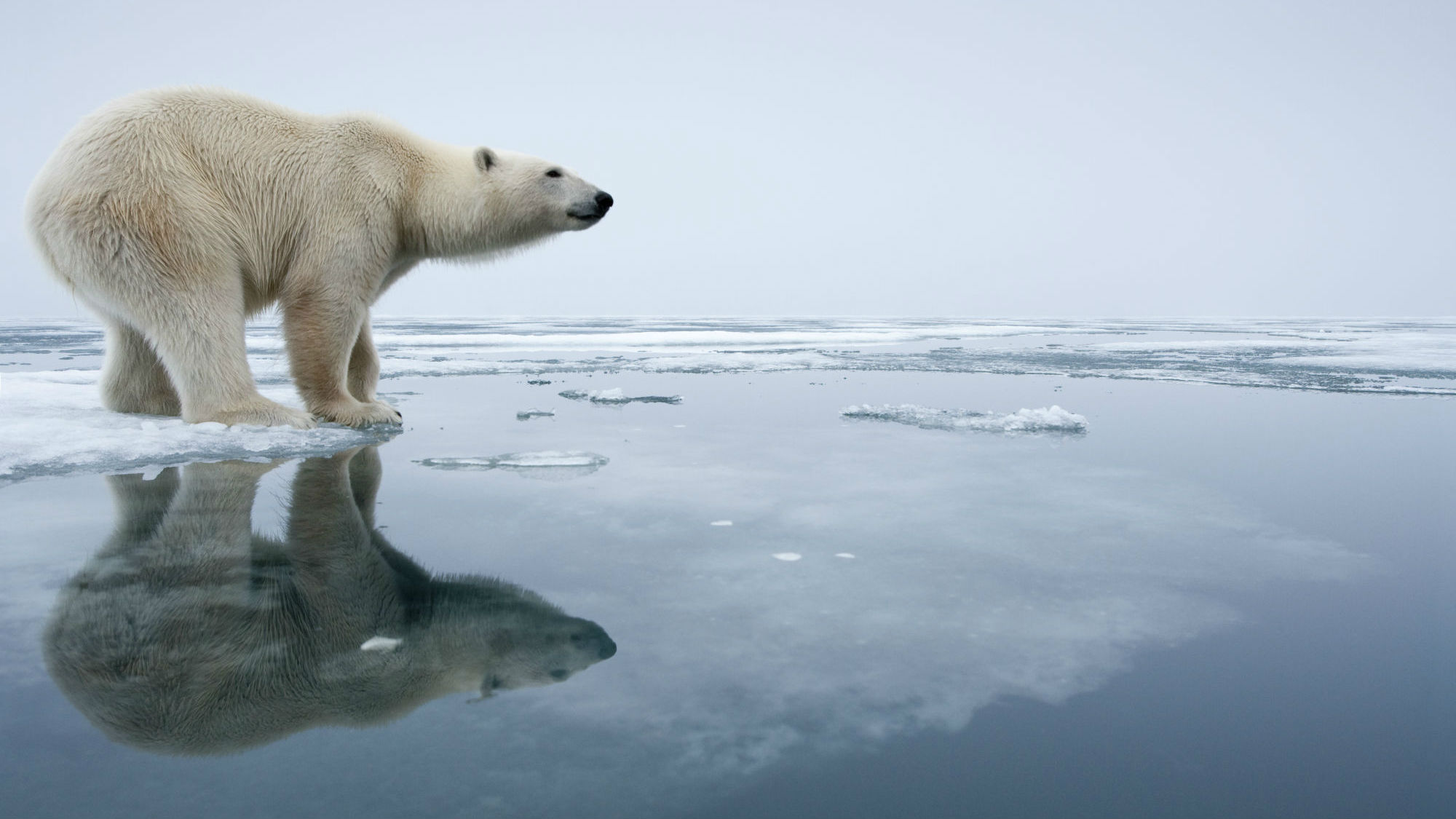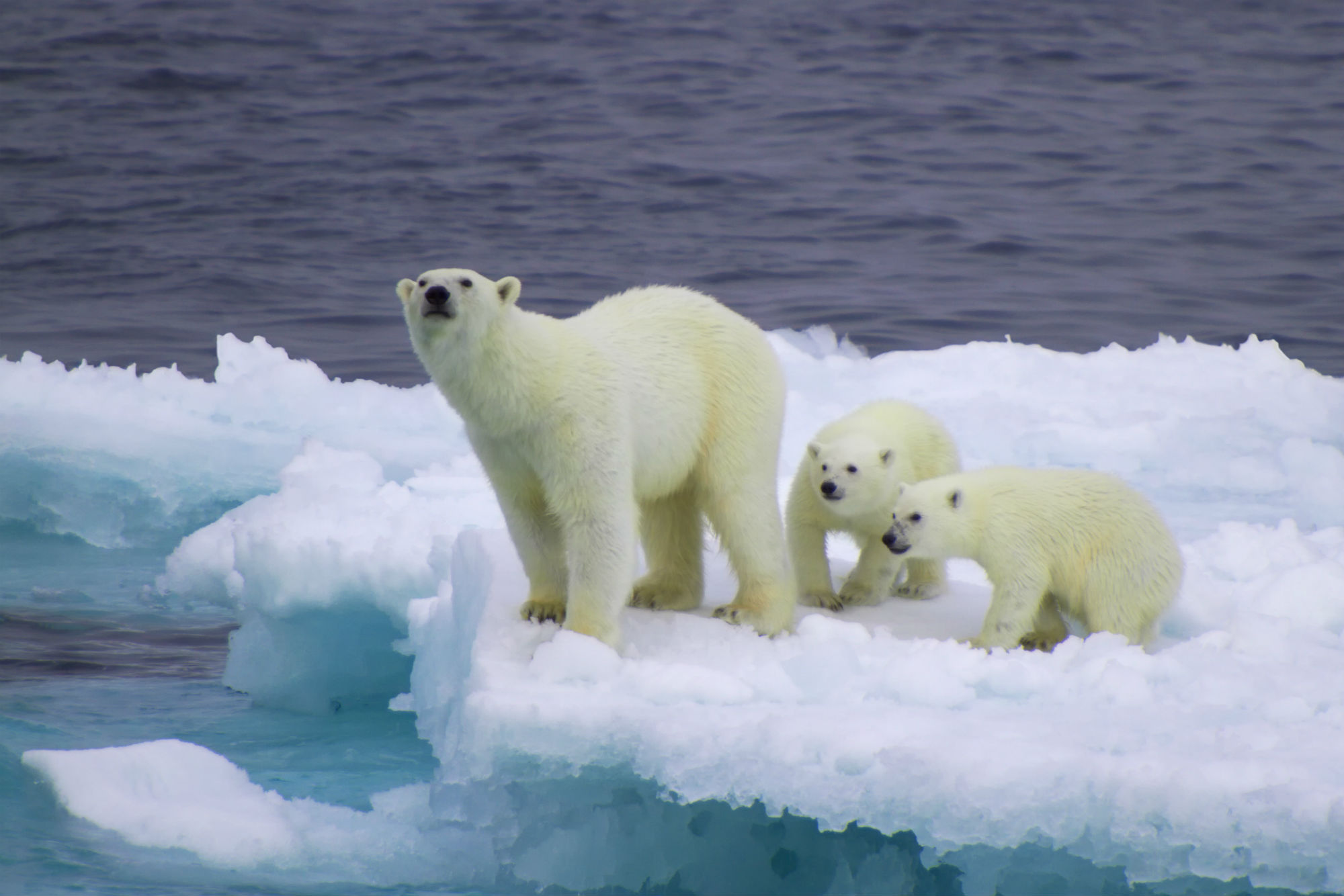Polar bears have officially been given a date for extinction
Polar bears are going to disappear if greenhouse gas emissions continue at their current rate

Celebrity news, beauty, fashion advice, and fascinating features, delivered straight to your inbox!
You are now subscribed
Your newsletter sign-up was successful
Polar bears are going to disappear if greenhouse gas emissions continue at their current rate
Polar bears are facing extinction - and we only have ourselves to blame.
For the first time, scientists have given a date for when these beautiful arctic bears may disappear from the planet altogether, citing climate change as a key factor in their decline.
Researchers from the University of Toronto examined how long the bears could survive in the arctic, as the sea ice they depend on to hunt, declines. They are are now warning that polar bears could be extinct by the end of this century if greenhouse gas emissions continue at their current rate. All but a few polar bear populations in the Arctic will probably be gone by 2100.
Their dwindling food sources is being blamed on the climate crisis, as ice levels in the Arctic have decreased at least by 40 percent over the last 25 years.
By as early as 2040, it is very likely that many polar bears will begin to experience reproductive failure, leading to local extinctions, according to a study published in Nature Climate Change.

Dr Steven Amstrup, chief scientist of Polar Bears International, told BBC News, 'First, we'll lose the survival of cubs, so cubs will be born but the females won't have enough body fat to produce milk to bring them along through the ice-free season.'
Celebrity news, beauty, fashion advice, and fascinating features, delivered straight to your inbox!
'As the ice breaks up, the animals are forced to roam for long distances or on to shore, where they struggle to find food and feed their cubs. Any of us know that we can only go without food for so long. That's a biological reality for all species'.
The BBC's science correspondent Victoria Gill said, 'Polar bears have become the poster species for climate change, because their survival is linked to the sea ice, which they use as a platform to hunt for seals.
She went on to say, 'This timeline is based on a 'business as usual' scenario regarding greenhouse emissions. The scientists say if countries act to reduce emissions quickly there is still a window of opportunity to save this arctic predator, and the frozen landscape it depends on.'
Polar bears are listed as vulnerable to extinction by the International Union for Conservation of Nature (IUCN). The time to act is now.
Olivia – who rebranded as Liv a few years ago – is a freelance digital writer at Marie Claire UK. She recently swapped guaranteed sunshine and a tax-free salary in Dubai for London’s constant cloud and overpriced public transport. During her time in the Middle East, Olivia worked for international titles including Cosmopolitan, HELLO! and Grazia. She transitioned from celebrity weekly magazine new! in London, where she worked as the publication’s Fitness & Food editor. Unsurprisingly, she likes fitness and food, and also enjoys hoarding beauty products and recycling.